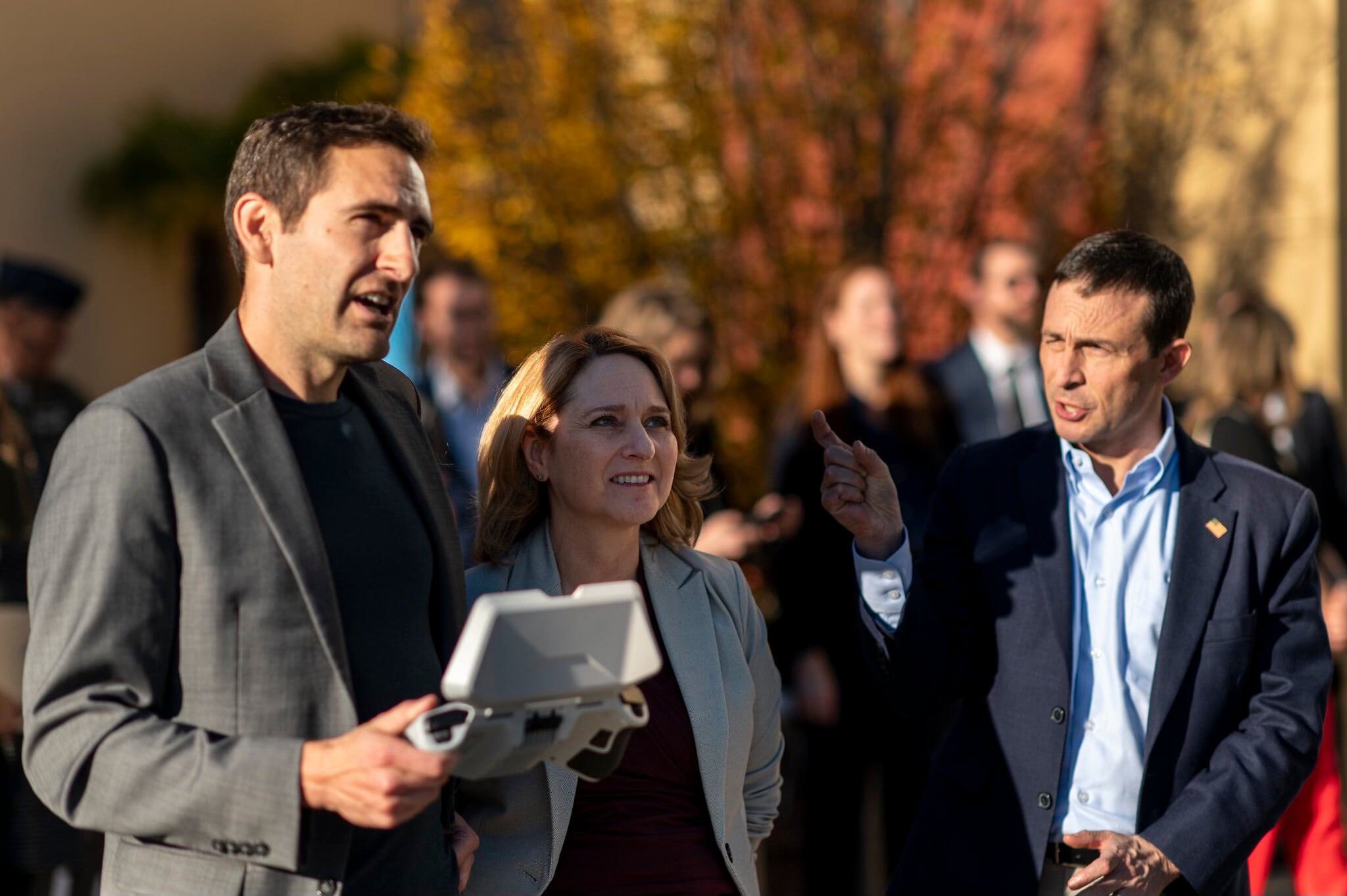Xtend, which develops semi-autonomous drone systems, said it will deliver a multi-drone operating system to Israel’s Ministry of Defense.
The Israeli company said on Jan. 19 that it won a $20 million contract for the system that will enable operators to control “dozens of human-guided semi-autonomous drones simultaneously.” The system will include Xtend’s XOS system which it describes as revolutionizing the “human to machine” interaction space and says is a “first-of-its-kind, multi-drone operating system.”
Xtend has seen success in the past in the U.S. In October it received a $9 million contract to develop multi-payload drones for the Pentagon’s irregular warfare office.
At the time it said this is the sixth contract between Xtend and the Irregular Warfare Technical Support Directorate, and it followed a deal in May for the supply of hundreds of Wolverine Gen2 drones. Xtend says that this is the latest of more than 20 major contracts the company has secured in the last three years.
The company says XOS is programmable and Aviv Shapira, co-founder, and CEO at Xtend said that it is scalable, affordable and flexible.
“XOS’s unique operating system allows humans to connect and interact with drones, robots, vehicles, smart devices, and smart machines remotely, safely, and intuitively,” Shapira said.
The contract with Israel’s Ministry of Defense is with the Directorate of Defense Research and Development, known in Hebrew as “Mafat” in Israel. The project “will see XOS enable the remote, safe, and intuitive operation of dozens of human-guided semi-autonomous drones simultaneously, utilizing the latest virtual reality, edge processing and AI technology,” the company said.
In recent years the incorporation of drones, especially groups of small drones has become common across modern militaries. The man-unmanned teaming and ability to control these drones is a key issue, including the use of “drone swarms.” Israel has used drone swarming technology, according to reports over the last several years. Ido Bar-On, VP of Business Development and Salessaid that Xtend and the Ministry of Defense “are working to secure the cooperation of other ally countries in this development program.”
Xtend says that the technology will be deployed remotely by military units in various scenarios precisely, intuitively, and “immersively.” The company says this enables a “shared vision of enabling drones to become more than just another ‘eye in the sky’, enable operators to control, interact, and run 3rd party applications on the drones remotely, keeping forces out of danger.” Operators will have access virtual reality and the system will incorporate artificial intelligence. An image the company distributed with the statement appears to show an operator wearing a helmet with a kind of VR display.
“We’re witnessing a revolution on the modern battlefield,” said an official source, at the IDF. “Working with Xtend over the last three years, we have already been able to field systems that are now in daily use, and we are confident that this new program will provide a tremendous leap in our operational capabilities. Putting the best of civilian technology into the hands of our soldiers,” the source said, according to a statement.
Shapira says that XOS lets “almost anyone to control multiple remote machines simultaneously using advanced VR technology, on top of an artificial intelligence layer. Alongside defense, XOS is providing a new way for public safety, inspection and homeland security professionals to interact with machines virtually in various civilian scenarios.”
Seth J. Frantzman is the Israel correspondent for Defense News. He has covered conflict in the Mideast since 2010 for different publications. He has experience covering the international coalition against the Islamic State group in Iraq and Syria, and he is a co-founder and executive director of the Middle East Center for Reporting and Analysis.






